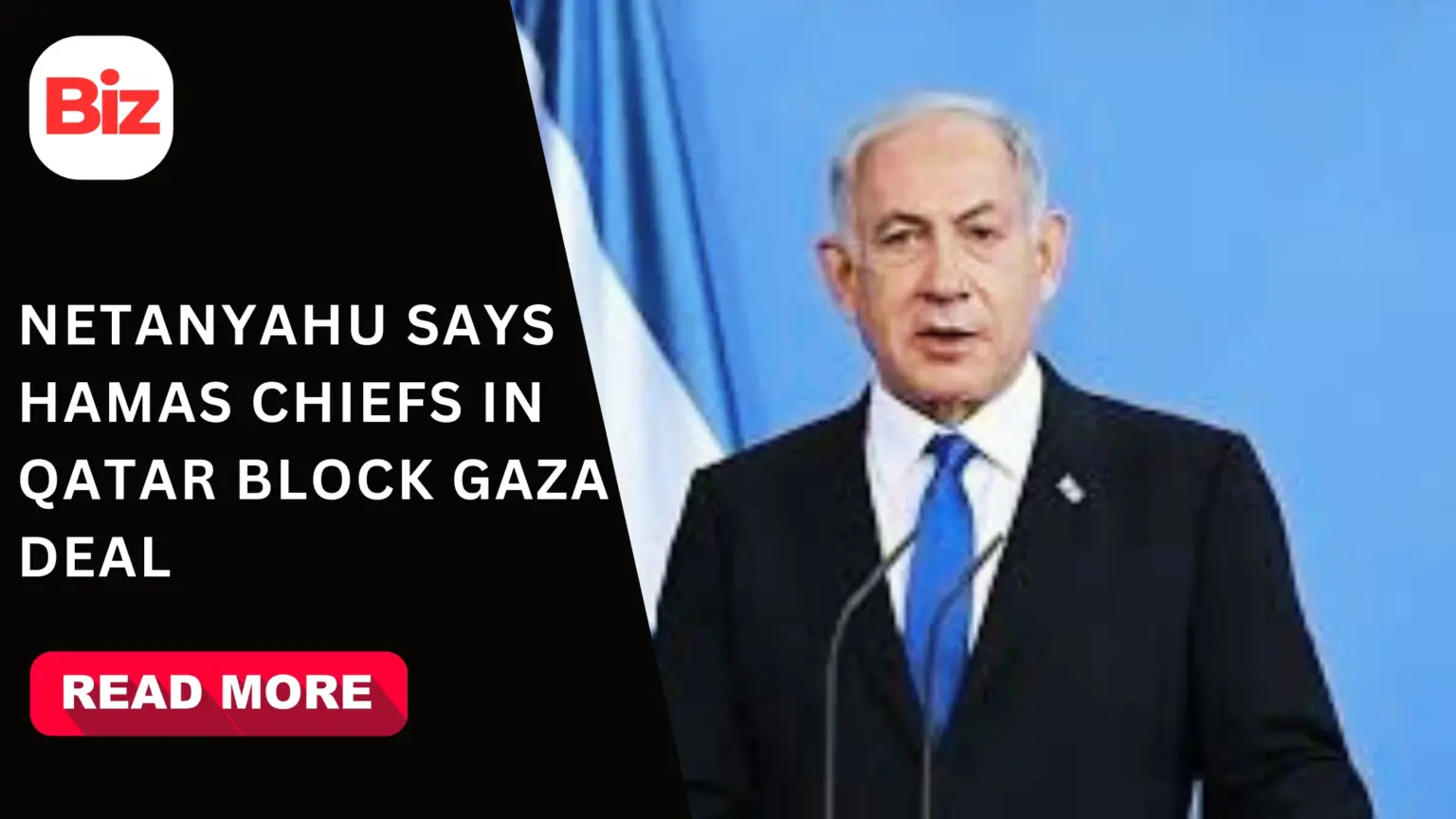Israeli Prime Minister Benjamin Netanyahu said on Saturday that removing the Hamas leadership in Qatar hosts would eliminate the “main obstacle” to freeing all hostages and ending the war in Gaza. He made the remarks after Israeli air strikes targeted senior members of Hamas in Doha, an attack that Qatar condemned and that appears to have undercut fragile ceasefire diplomacy.
The strikes hit a site in Doha that Israel said sheltered senior Hamas figures. Hamas reported the deaths of several members, including the son of a senior exiled Gaza official, while saying its top negotiating team largely survived. Qatar said a member of its internal security forces also died. Netanyahu framed the action as directed at leaders who, he said, had blocked past attempts to halt the fighting.
Israel has pressed for the unconditional return of the remaining hostages and for Hamas’s disarmament. Hamas has insisted it will not free all captives without an agreement that ends the war and offers a path to Palestinian statehood. Those opposing positions remain at the heart of any Gaza hostage deal.
U.S. Push for a Gaza Hostage Deal
U.S. mediation has been active in recent weeks. President Donald Trump said he expected a deal “soon” and described ongoing work to secure the release of hostages, adding that he had presented terms he viewed as acceptable. Media reporting of one U.S. proposal said it would see Hamas release dozens of hostages on the first day of a truce in return for thousands of Palestinian prisoners and a negotiated end to the fighting. Israeli officials said they were considering the proposal.
Still, the Doha strike sharply raised tensions inside Israel. Families of the remaining captives and the Hostages and Missing Families Forum denounced the operation. At mass rallies in Tel Aviv and other cities, relatives accused the government of sabotaging a possible Gaza hostage deal and warned that delays cost lives. The forum explicitly blamed the prime minister, saying he had become “the one obstacle” to a ceasefire and hostage release.
The Israeli strikes and the prime minister’s comments have also complicated relations with key mediators. Qatar has served for months as a venue and facilitator for ceasefire talks and hostage negotiations. Doha condemned the strikes and warned the operation could derail trust that underpins diplomacy. Regional and international actors are now confronting a tougher path to restart formal talks.
Fallout From the Doha Strike
Critics and commentators immediately seized on the fallout. Some outlets and analysts argued that the attack on the Qatari site damaged delicate arrangements that enabled back-channel talks. Others said the strikes reflected a deliberate Israeli calculation to degrade Hamas’s external command. Coverage in regional and international media highlighted both the diplomatic cost and the immediate political gain Netanyahu sought by framing the Hamas leadership in Qatar presence as the barrier to a deal.
Hostage family statements showed sharp impatience. At Hostages Square in Tel Aviv, relatives demanded urgent action to bring captives home. Speakers accused the government of “life-threatening procrastination” and warned against allowing operations to become a substitute for negotiation. The forum’s leaders said the strike in Doha had “cut off” talks and risked sealing the fate of vulnerable captives.
Netanyahu’s public claim focused squarely on Hamas’s overseas leadership. He argued that the Hamas leadership in Qatar installation had blocked prior ceasefire attempts and that neutralizing it would speed a settlement. That framing attempts to link the external command directly to the fate of hostages and to place responsibility for delays on Hamas figures living abroad.
Hostage Talks at Risk
Soldiers and diplomats now face a narrowing window. The United States and regional intermediaries were advancing ideas for a step-by-step release and prisoner exchange. Those plans relied on continued access to mediators who could pressure Hamas or shepherd staged handovers. The Doha strike and the public comments tying the strikes to hostage outcomes risk undercutting mediator leverage.
Israeli officials say their position remains that Hamas must free all remaining captives and disarm. Hamas leaders counter that such demands are unrealistic without a concrete promise to end the war and provide a political horizon. The deep gap between those positions has long complicated any Gaza hostage deal and now does so with heightened urgency.
The domestic political stakes in Israel are high. Hardline coalition members have pushed for a wider offensive in Gaza City. Those pressures may embolden military action over negotiation. At the same time, pressure from victims’ families and street protests reinforced calls for an immediate truce to save lives. The tension between those currents will shape whether talks can resume.
International Reaction
International response to the strike has focused on both sovereignty and the mechanics of negotiation. Qatar condemned the attack and insisted its role as an interlocutor must be respected. The attack also drew commentary about whether unilateral military moves on a mediator’s soil make back-channel diplomacy impossible. Analysts warned that trust, once broken, is slow to mend.
For now, prospects for a near-term resolution look uncertain. Netanyahu has publicly tied hostage release to the removal of those he called the obstacle. Opponents say that the strategy risks sacrificing negotiated progress for a military show of force. Mediators, families and governments will now weigh whether to press for a rapid return to talks or to harden positions in response to the Doha strike.
What Comes Next
What happens next will hinge on a few narrow variables. Will mediators keep channels open with Hamas despite Doha’s condemnation? Will the United States and other intermediaries continue to press the terms reported in recent proposals? Can Israel balance military aims with the political imperative to return hostages? The answers will decide whether the recent escalation becomes a final blow to negotiations or a painful interlude on the road to a truce.
Recommended For You
UAE Launches Major Water Pipeline in Gaza Strip | Gaza News & Ceasefire Updates








